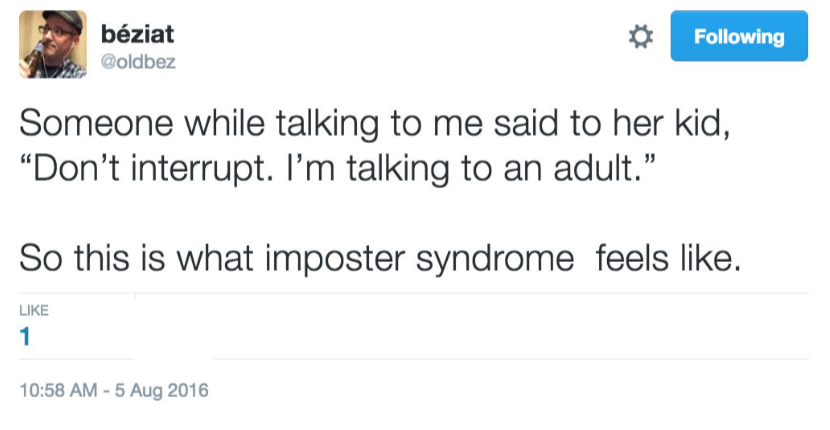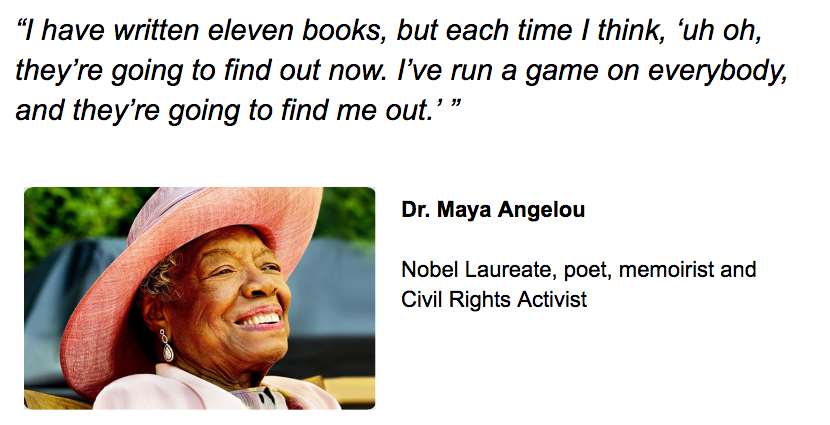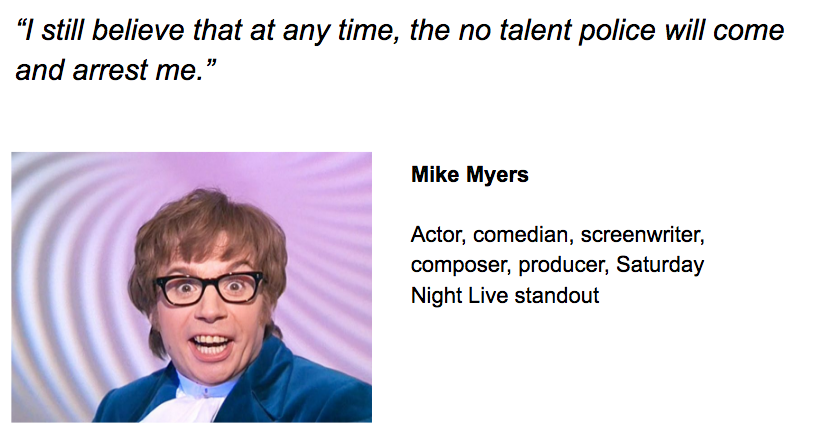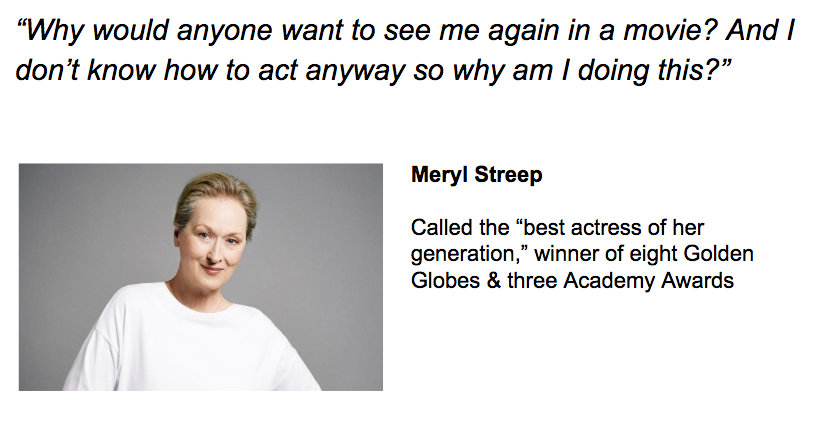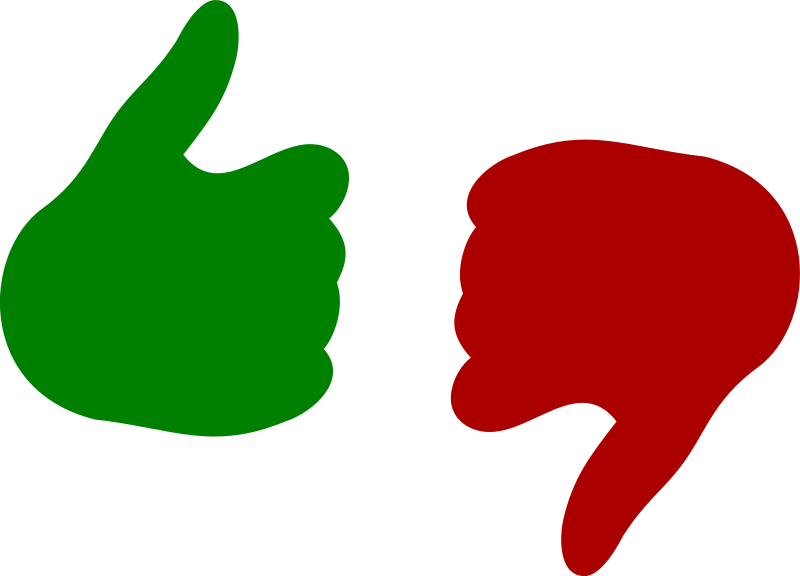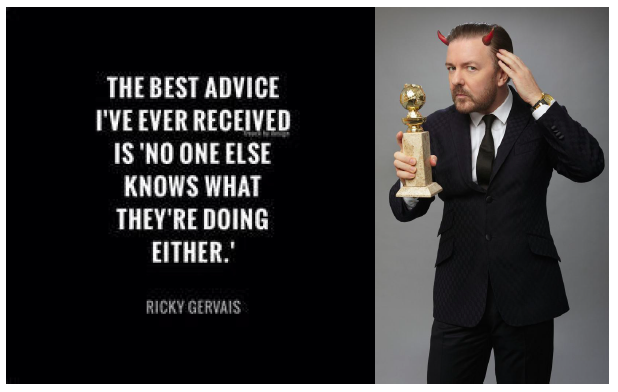Have you ever, at any point of your career, thought one of these things:
- "I'm no good at this. I have no idea what I'm doing."
- "My boss/coworkers are going to find me out and I'll be fired."
- "Everyone seems to know what they're doing except me."
Congratulations: you have experienced Imposter Syndrome.
WHAT IS IMPOSTER SYNDROME?
"Imposter syndrome" is a term coined in 1978 by clinical psychologists Dr. Pauline R. Clance and Suzanne A. Imes. It refers to high-achieving individuals marked by an inability to internalize their accomplishments and a persistent fear of being exposed as a "fraud".
Imposter Syndrome affects people across all ages, all genders and many vocations. A high rate of people in tech experience imposter syndrome as they progress their skillsets and have few to no coping mechanisms in which to overcome feelings of inadequacy.
You might be surprised to find out that many successful and famous people suffer the same feelings of inadequacy:
There are Three Types of Knowledge
- Stuff you know
- Stuff you know you don’t know
- Stuff you don’t know you don’t know
If you feel like a fraud, it is because you're confusing category 3, with category 2.
SELF SABOTAGE & HURT CAREERS
Imposter syndrome is insidious because it can cause self-sabotage. When we don't feel worthy:
- We don’t apply for positions because we don’t feel like we're good enough to do the work.
- We diminish the value of our work and don’t ask for enough money when interviewing for a job
- We don’t ask for raises because we think our work isn’t up to the standards of our managers or bosses who approve a higher pay rate
“BIG NEWS: IT’S OKAY TO SUCK”
Try something new AND stick with it even if you’re terrible.
I began yoga in 2015. Didn’t know a downward dog from a sun salutation. I signed up for a $5 class and thought I was going to die. I was absolutely terrible. But I went back. And I was convinced at times the end was near. But after a few months, I did a crow pose. And then I did a backbend. Little by little, I improved.
When you do something you’re truly bad at, you know the real feeling of “I suck at this.” That gives a good baseline for you to differentiate between skills you’re really good at doing and tasks you’re not so great attempting.
When you try new things:
My own journey:
- Art School - I attended with people who are far more gifted than me.
- Worked as a graphic designer for 17 years & I have never felt like a “real” designer
- Moved to web development in 2012, worked with Kenneth White at Sprclldr for 3.5 years then began to my own company, Permelia Media and currently I’m a web developer at Parthenon Publishing. I still have momentary feelings of being a fraud.
How to overcome feelings of Imposter Syndrome:
- Review what you have learned
Once you take stock of where you have been and where you are, you will come to see that you’ve come a long way
- Surround yourself with peers who are supportive of the learning process
There’s a maxim about the 5 people you associate with most determines the person you are. Choose wisely.
- Keep a list of the nice things people say to you about you
I have some very smart friends. Many of these people tell me regularly how proud they are of me and/or congratulate me on my accomplishments. I know that these things must be true because I am not smart enough to fool my very smart friends for this long!
- Get involved in your community: you’ll learn something new while meeting new people you can share your skills with. I am involved with my local neighborhood association. I built their website and learned a lot in the process.
- Step out of your comfort zone
You might find other things you’re good at too.I had never volunteered to plan a conference prior to this year’s WordCamp Nashville. I led the WCN publicity committee; branched out into sponsorships and raised over $3700 for the event.
Final thoughts:

